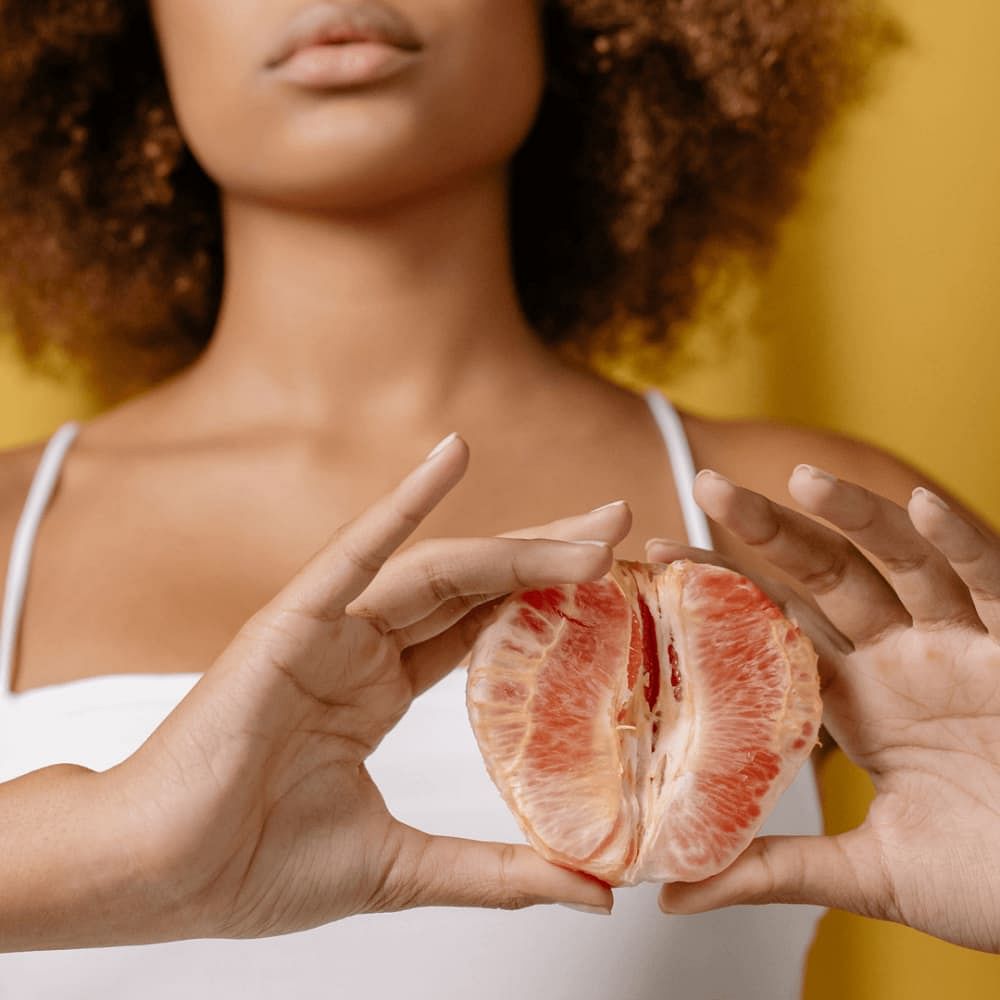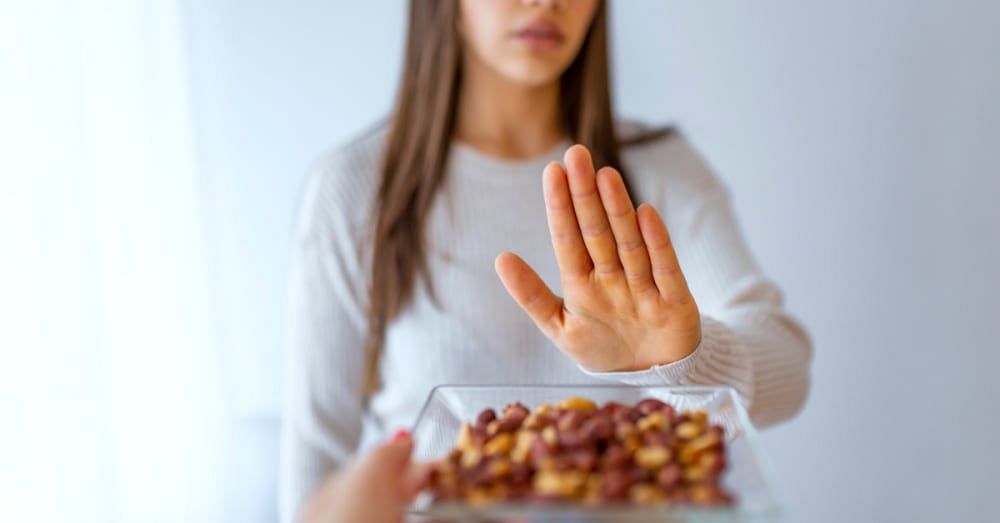Did you know? The vagina has self-cleaning properties. A woman's discharge and bodily fluids change consistency and colour, making them an essential indicator of her overall health.
What is Leucorrhoea (Likoria)?
Leucorrhoea, also known as Likoria, is a medical condition in which women experience the presence of yellowish or whitish vaginal discharge. This discharge generally has a thick consistency. Most women worry about this consistency, thinking they have a disease, but it is often just a vaginal infection.
Vaginal discharge crops up just before a woman's menstrual cycle is about to begin or if she is sexually stimulated. In fact, some vaginal discharge is favourable, acting as a natural lubricant for the vagina.
Is Leucorrhoea Normal?
Yes! Experiencing Leucorrhoea (Likoria) is entirely normal. Women may experience Leucorrhoea symptoms during- pregnancy, when their period is about to begin, during infection of the female genitals, and hormonal irregularities.
Types of Leucorrhoea
There are three main types of Leucorrhoea among women:
#1 Inflammatory Leucorrhoea
Usually a sign of an organic bacterial infection, the vaginal mucus becomes inflamed in this type of Leucorrhoea (Likoria), resulting in yellowish colour and an odour in your vaginal discharge.
#2 Parasitic Leucorrhoea
This type of Leucorrhoea is caused due to the presence of trichomonas vaginalis - a protozoan parasite and symptoms include intense vaginal itching and thick, yellow vaginal discharge.
#3 Physiological Leucorrhoea
This leucorrhoea type is not much to worry about. Usually occurring during the pregnancy stage, it is caused by an increased blood flow to the vagina due to increased estrogen levels in the body.
Leucorrhoea Causes
Natural changes like alterations in the estrogen level, sexual arousal, birth control pills, ovulation, and pregnancy result in vaginal discharge. However, one must be aware of the possible infections that may require Leucorrhoea treatment.
1. Bacterial vaginosis
An imbalance in the vaginal bacteria causes imbalance, leading to greyish, watery, and foul discharge. The discharge usually has a strong and fishy odour. However, many times, there aren't any symptoms visible for Leucorrhoea caused due to bacterial vaginosis.
2. Genital herpes
Generally, STIs or sexually transmitted diseases cause abnormal likoria. It leads to thick vaginal discharge with a strong odour, especially after sex. It results in blisters and sores in the genitals, a burning sensation while urinating, or bleeding between periods. Studies even show that there can be mild or no symptoms in this case.
3. Trichomoniasis
It is a parasital infection that spreads through sexual contact. Research shows that up to half of affected people with trichomoniasis do not have any symptoms. It results in a green or yellowish frothy discharge with a foul smell with an itching sensation. STIs and poor hygiene also cause trichomoniasis.
4. Vaginitis
Friction around or in the vaginal areas causes vaginitis. It can be due to the penetrable contraceptive device or a partner's contraceptive device.
5. Gonorrhoea and chlamydia
It is a sexually transmitted infection that results in abnormal white discharge due to cervical infection. One may experience bleeding after penetrative vaginal sex, stomach pain, bleeding between periods, or pain when urinating.
6. PID or Pelvic Inflammatory Diseases
It is an infection in one or more reproductive organs like the fallopian tubes, ovaries, or uterus. Such infections result in stomach pain and foul-smelling discharge, generally while urinating and menstruating or after sex.
STIs may cause the bacteria to move into the vagina or other reproductive organs, resulting in PIDs.
7. Yeast Infection
A yeast infection in the vagina leads to thick and curdy-white discharge, appearing like cottage cheese. It may accompany symptoms like itching, burning, or soreness around the vagina. Diabetes, stress, birth control pills, antibiotics, and pregnancy often increase the chance of causing yeast infection.
Also read: Removing vaginal odour
Leucorrhoea Symptoms
Symptoms project to underlying disease and thus should be diagnosed as early as possible. Some symptoms of Leucorrhea are mentioned below:
- Itching in the vulva.
- Extremely sore vulva.
- Abnormal vaginal discharge.
- Foul-smelling discharge (fish-like smell).
- Thick yoghurt-like discharge, which is yellow.
- Vaginal bleeding between two menstrual cycles.
- Excruciating pain in the lower abdomen (similar to menstrual cramps).
- Painful intercourse or pain after intercourse.
- Bleeding during or after intercourse.
- Painful urination.
- Vaginitis or inflammation of the vagina causes an unusual discharge.
- Abnormal skin growth around the vaginal area.
- Intense swelling of the vagina.
- Lower backache.
Leucorrhoea Treatment
If the vaginal discharge continues or turns into abnormal Leucorrhoea, it requires immediate medical attention. The type of Leucorrhoea treatment entirely depends on its causes. For instance, doctors suggest anti-microbial or antibiotics medicine for treating bacterial vaginosis. Gels or vaginal creams help treat yeast infections if one is allergic to allopathic medication.
However, if one faces abnormal Leucorrhoea during pregnancy, one must consult the doctor as soon as possible. The most probable chance of Leucorrhoea in a pregnant woman is due to yeast infections. Experts recommend vaginal gels or creams and possible Leucorrhoea home remedies.
Firstly, doctors perform a general physical examination to witness the causes of Leucorrhoea. Consequently, they suggest medications to treat the infections and help normalise the vaginal discharge.
Leucorrhoea Treatment in Ayurveda
Ayurvedic treatment for Leucorrhoea (Likoria) can help address all aspects of Leucorrhoea. It is safe even to help treat abnormal discharge causes due to some gynaecological surgery. Ayurvedic medicines also controls Likoria (the vaginal discharge) due to bacterial or fungal infections.
- Yonidhavan procedure (done by a decoction of herbal drugs) is considered to be a very beneficial treatment for Leucorrhoea.
- Ayurvedic herbs such as Haridra Daruhalad, Ashoka, Lodhra, among others, are used as ayurvedic medicine for Leucorrhoea.
- Panchakarma treatment alongside ayurvedic medicines can help manage Leucorrhoea (Likoria- vaginal discharge).
- Another ayurvedic solution for Leucorrhoea is Namyaa Shwetkanika, an Ayush Certified product. This medicine treats the primary cause of the foul-smelling white discharge.
Benefits of Ayurvedic Treatment for Leucorrhoea (Likoria)
- Ayurvedic medicines help minimize vaginal PH and prevent relapse. It normalizes vaginal microflora.
- Leucorrhoea treatment in Ayurveda helps address the root cause of the vaginal discharge first instead of jumping right into solving for the symptoms.
- Ayurveda helps focus on your diet, yoga and meditation apart from using the potent herbs that help with the treatment.
Leucorrhoea Treatment in Homeopathy
Let's have a look at some homeopathic medicines for Leucorrhea:
#1 Sepia Officinalis
Sepia Officinalis is a natural remedy for treating Leucorrhea, a condition characterised by excessive hot flushes, sweat, and weakness in women approaching menopause. This drug is quite helpful when the discharge is yellowish-green in colour and the vulva itches excessively.
#2 Alumina
If the discharge is too watery and heavy, then alumina can be used to treat such conditions. Alumina is an effective treatment for those who suffer from chronic constipation and go for days without passing stool or poop.
#3 Calcarea Carbonica
This medicine is excellent for milky white vaginal discharge and itching issues. If Leucorrhea is getting worse after urination, then this medicine can help you.
#4 Kreosotum
When Leucorrhea is exceedingly irritating and caustic, causing violent corrosive itching of the genitals, Kreosotum can be the best natural therapy.
#5 Natrum Muriaticum
Natrum Muriaticum is a natural remedy that can reduce Leucorrhea characterised by a thick, white, and transparent vaginal discharge.
#6 Hydrastis Canadensis
Hydrastis Canadensis is recommended for Leucorrhea patients who have a yellow, thick, ropy vaginal discharge that hangs down in long threads and has excessive itching.
Leucorrhoea Treatment at Home
- Using freshly squeezed lemon juice and water, clean the vaginal area.
- Eat Okra, preferably mildly cooked or raw.
- Consume at least one to two bananas daily.
- Once a day, drink one glass of fresh cranberry juice, ideally without sugar. It's great for vaginal health.
- Soak some coriander seeds in water overnight and drink the water on an empty stomach the following day after straining it.
- Women must get medical advice before using any of the leucorrhea home remedies mentioned above.
What Should I Eat to Avoid White Discharge (Likoria)?
To avoid the white discharge, you must:
- Avoid foods that are high in spices and oils
- Avoid coffee and tea as tannins present in them may increase the discharge
- Avoid alcohol and carbonated drinks
- Avoid non-vegetarian foods
- Chew betel nuts after meals
- Increase intake of seasonal fruits, green leafy vegetables, and salads
- Increase your water intake
Leucorrhoea in Pregnancy
Leukorrhea is more prevalent during pregnancy. It's due to the increased blood supply to the vaginal area and rise in pregnancy hormones like estrogen that causes the vaginal discharge to increase frequently. Increased vaginal discharge is caused by an increase in blood flow and pregnancy hormones stimulating the mucous membranes.
It's not threatening, and it's not usually a symptom to worry about. It is detectable during pregnancy, and as you get closer to your due date, it may become more noticeable.
Also read: All you need to know about fingering your vagina
Is Leukorrhoea Normal When Not Pregnant?
Yes, Leucorrhea is normal when not pregnant. It is a clear or white thick discharge without any odour. A small amount of vaginal discharge, almost one teaspoon a day, is considered normal if no discomforts are associated.
The thickness and consistency of the discharge may change with the number of days in the menstrual cycle. Leukorrhea discharge becomes thin and stretchy similar to that of egg whites in the middle stages of menstruation. The vaginal discharge becomes thick at the end of the menstruation cycle.
Leucorrhoea is a normal discharge, but it may not be normal in all cases. In some women, it may cause discomfort and hence needs attention. If you notice any of the following symptoms or discomforts, consult your doctor as these are the signs of abnormal leukorrhea or leucorrhoea with infection:
- Itching, irritation, foul odour, or burning sensation with urination
- A sudden increase in the quantity of discharge
- Discharge with increased thickness
- Grey discharge with decreased thickness
- Pus in the discharge giving it a foul smell
- Yellow-green discharge with some frothiness
When To Seek Professional Help?
One may experience the following symptoms during abnormal Leucorrhoea, which requires immediate professional help:
- Abdominal cramps, even after menstruation or sex.
- Fever
- Unexplained weight loss
- Irritation and vaginal itching accompanied by thick, whitish, or yellowish discharge.
- Burning sensation while urinating
- Dyspareunia or painful sexual intercourse, etc
One should not ignore or overlook such symptoms and consult your gynaecologist as soon as possible.
Leucorrhoea (Likoria): When Should You be Worried?
Leucorrhoea, also known as Likoria, isn't a serious medical issue and can be treated easily. There is nothing serious if your discharge is odour-free and doesn't have unusual colour or consistency. However, if you experience the below-mentioned symptoms, it's advisable to consult your doctor, especially for pregnant women.
- If a burning sensation and itching accompany the discharge.
- If you experience painful urination.
- If you bleed during intercourse.
- If the consistency of discharge is thick and has a foul smell.
What Is the Difference Between Leukorrhoea and Normal Discharge?
Leucorrhoea is a normal discharge that may appear white or yellow in colour. However, it is difficult to differentiate between leukorrhea and abnormal discharge from a yeast infection or any other infection. Consult your doctor if you notice any discomfort, itching, or burning sensation around the vaginal area.
FAQs
How Long Will Leucorrhea Last?
Leucorrhoea usually can last up to 14 days.
How do I know if I have Leucorrhea?
There is a difference between a healthy discharge and a discharge that indicates you have Leucorrhoea. If your vaginal discharge carries a pungent odour, is yellowish-green in colour, has a lumpy consistency, is accompanied by the desire to itch your vagina and pain during urination- chances are you have Leucorrhoea.
Does Leucorrhea Affect Periods?
No, Leucorrhoea does not affect female menstruation. It is normal for the female body to produce about a teaspoon of vaginal discharge every day, with or without menstruation. However, towards the end of your menstrual cycle, when you are about to get your period, your vaginal discharge is stickier. However, once the egg is not fertilised and released along with the uterine lining, you may notice a thin, more stretchy discharge.
Does Leucorrhea Mean You're Pregnant?
Leucorrhoea does not necessarily indicate that a woman is pregnant. It is normal for a woman to have a milky, mild-smelling discharge before pregnancy as well. However, during the pregnancy phase, estrogen levels in a woman's body are at an all-time high, signalling your vagina to produce more discharge. Early pregnancy stages may include an increased white, creamy vaginal discharge. Only vaginal discharge that is green, yellowish and highly foul-smelling could point towards an infection.
Can Leucorrhea Lead to Infertility?
If you experience vaginal discharge with an extremely foul odour and is yellow or green, leaving this condition untreated could lead to severe complications in the future, such as pelvic inflammatory disease and infertility.
Is Leukorrhoea an STD?
No, leucorrhoea is not a sexually transmitted disease (STD). However, as per a study, leucorrhoea can be a symptom of a sexually transmitted disease. According to the study, sexually transmitted diseases can be a potential cause of leukorrhoea, and therefore leukorrhoea should not be neglected, especially if some discomfort is associated with it.
As per a study, among women diagnosed with sexually transmitted diseases, 66 per cent had thick, white vaginal discharge called leukorrhea. Leukorrhea is reported to be the most common symptom among women living in the slums of Uttar Pradesh, as per their visit to the tertiary care centres.
Which Medicine Is Best for Leucorrhoea?
The medicine prescription for leucorrhoea depends on the underlying cause of the vaginal discharge. Some of the best treatment modalities are:
- Antibiotics or antimicrobial agents to treat bacterial vaginosis
- Vaginal creams for treating yeast infection related leukorrhea
- Do not wear tight clothes that are not breathable
- Avoid wearing nylon underwear that may cause itching and irritation
- Wash your genitals after exercising, showering, swimming and urinating
- Add curd and yoghurts to your daily food to promote the growth of healthy gut bacteria
As per the research by the American Academy of Family Physicians Foundation, metronidazole is an effective medicine for leucorrhoea. However, you must consult your doctor before starting any medicine.
References
- Shobana L Ramasamy; Sexually Transmitted Disease and Leukorrhea in a Rural South Asian Himalayan Community: A Study of Perceptions and Barriers to Treatment - https://clinmedjournals.org/articles/ijwhw/international-journal-of-womens-health-and-wellness-ijwhw-5-096.php?jid=ijwhw#:~:text=Abstract-,Background,rural%20Himalayan%20communities%20of%20India.
- BARRY L. HAINER, April 2011; Vaginitis: Diagnosis and Treatment - https://www.aafp.org/afp/2011/0401/p807.html











